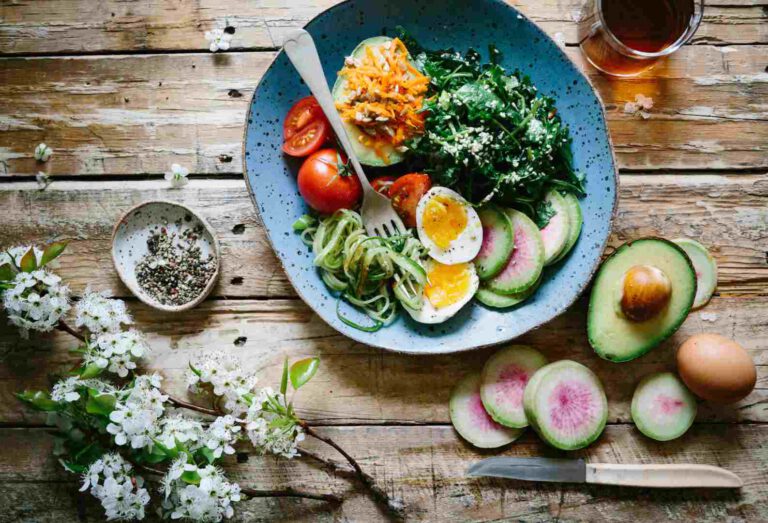Flexitarian diet – what is it?
Contents:
According to estimates, meat production has increased fivefold since the 1960s, while half of the Earth's wild animal species have become extinct. The mass farming of cattle, pigs, and poultry has completely changed the face of our planet. Currently, 60% of the world's mammals are farm animals, 36% are humans, and only 4% are wild animals. For this reason, there is increasing discussion today about how a properly managed diet, both vegetarian and vegan, affects not only our health and the fate of farm animals, but also the natural environment and the economy.
What is flexitarianism?
Every year, more and more people are giving up meat consumption completely or partially for ethical and health reasons, and out of concern for the future of the planet. Veganism and vegetarianism are not the only solution. If we are considering these diets but find it difficult to give up meat completely for various reasons, we can opt for a flexitarian diet. It is mainly based on plant-based products and dairy, but also allows the consumption of meat, albeit in limited quantities. How limited? It only depends on our individual preferences. If we used to eat meat every day, for example, we can set one meat-free day a week. It can also be the other way around - one day we eat meat and the next we don't. For example, we can completely stop buying sausages and eat meat only for dinner. Another solution is to completely stop eating meat every day and eat it only on holidays or when we are invited to someone's house and meat is served for dinner.
Why should you limit your meat consumption?
As it turns out, there are several reasons for this. In the past, people who cared about animal suffering converted to vegetarianism primarily for ethical reasons. Today, our awareness is greater, which is why health, environmental, and economic reasons also speak in favor of avoiding or limiting meat in our diets:
- Health – Pork and beef have a relatively high content of saturated fat, which is not good for our bodies. Excessive consumption of these fats negatively affects the circulatory system and the proper functioning of the heart and blood vessels. In addition, red meat leads to excessive acidification of the body and slows down metabolism.
- Concern for the fate of farm animals – industrial farms often mean a lack of dignity for animals, who are kept in small boxes, without access to fresh air and natural light, fed the same food every day, with the addition of hormones and antibiotics,
- Care for the natural environment – limiting meat consumption has a positive impact on our entire planet. A long-term reduction in meat production can significantly reduce CO2 emissions into the atmosphere from the cultivation of feed crops and also stop the deforestation of rainforests and other forest areas, i.e., natural ecosystems and areas used to grow feed for cattle and pigs.
- For economic reasons, 670 million tons of grain are used worldwide as animal feed. If the average American gave up one serving of meat per week, they would save up to 7.5 million tons of grain—enough to feed 25 million people—the same number of people who go hungry every day in the United States.
What instead of meat?
Limiting meat consumption doesn't mean that our diet should be less varied and contain fewer ingredients necessary for the proper functioning of the body. It should be rich in fresh vegetables , fruits, nuts and sprouts, and legumes, which are a great source of protein, as well as iron, magnesium, folic acid, other B vitamins, and potassium. These plants are primarily:
Moving towards flexitarianism also means responsible shopping, choosing animal products from small, local farms that follow humane standards during both breeding and slaughter. Although poultry is said to be healthier than beef and pork because of its lean meat, we all know that even poultry raised on industrial scales on huge farms is fed hormones and antibiotics, which also often end up on our plates. This leads to dysregulation of our hormones and increases the risk of various diseases. By choosing a flexible diet, we can take small steps to contribute to improving our health, the fate of farm animals, and the planet as a whole.
THE PUBLISHER'S CHOICE
Dried plums 1 kg BIOGO
- €7,01
- €7,01
- Unit price
- / per
Dried White Mulberries 500 g ORGANIC
- €5,84
- €5,84
- Unit price
- / per
Almonds 1 kg BIOGO
- €11,69
- €11,69
- Unit price
- / per
Cranberries sweetened with apple juice organic 1 kg BIOGO
- €16,37
- €16,37
- Unit price
- / per
Dried dates 1 kg BIOGO
- €4,21
- €4,21
- Unit price
- / per
Unpeeled buckwheat groats 1 kg BIOGO
- €2,81
- €2,81
- Unit price
- / per
Walnuts 800 g BIOGO
- €8,65
- €8,65
- Unit price
- / per
Peeled sunflower seeds 1 kg BIOGO
- €3,04
- €3,04
- Unit price
- / per
PULLED ORGANIC SUNFLOWER SEEDS 1 KG BIOGO
- €4,44
- €4,44
- Unit price
- / per












































































































































